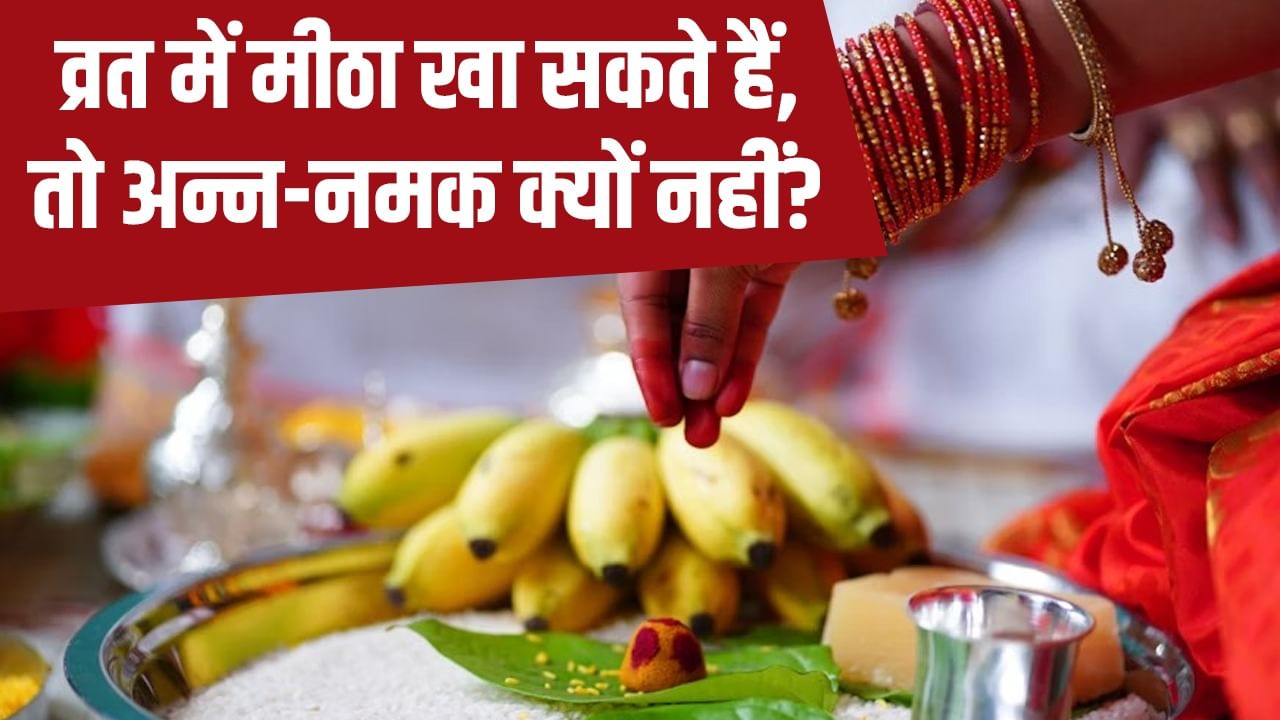Rules of fastingImage Credit Source: Unsplash
Fasting rules: Fasting, ie fasting, is an integral part of Indian culture and spirituality. It is not only limited to avoiding eating and drinking, but it is also a way to cleanse body and mind. During the fast, we consume some special food, such as fruits, milk and sweet things, but avoids grains and salt. In such a situation, many times the question arises that when you can eat sweet, why not food and salt? Let us understand the spiritual and scientific reasons behind it in detail.
Spiritual cause of distance from food and salt
Tamasic food: Onion, garlic, meat-liquor and stale food are considered tamasic. They increase laziness, anger and negativity in the mind. They are completely avoided during the fast.
Rajasic food: Spicy, more fried and salty food is called Rajasik. They make the mind fickle and restless. Rajasic food produces stimulation in the body, which makes it difficult to meditate.
Satvik food: Light foods like fruits, milk, curd, dry fruits and sago are considered sattvic. They make the mind calm, stable and positive.
The main purpose of the fast is to calm the mind and meditate on God. That is why the fast is emphasized on eating satvic food, which helps in concentrating our mind. Salt and grains are considered to be with royal and tamasic properties, so distance is made from them.
Resolve to purify the body
Fasting is a kind of resolution, in which we practice to subdue our senses. Food and salt work to increase our physical appetite. Staying away from them, we learn to control our physical desires, which is very important for spiritual practice.
Scientific and Ayurvedic approach
Relax the digestive system: During the fast, instead of applying our body to digest its energy, it puts the body repair and toxic substances out. It takes more energy to digest food, so avoiding it relaxes the digestive system.
Balance of salt and water: Salt keeps water in the body, which causes more thirst. After avoiding salt in the fast, there is a balance of water in the body. Apart from this, excessive consumption of salt during fasting can increase blood pressure and can also cause stimulation in the body.
Sweet and fruit permission
Fruits, milk, nuts and natural sweetness give energy to the body, but this energy is sattvic. Which helps in meditation, chanting and worship. Sweet brings positivity, stability and happiness to the mind, while granic and tamasic properties are considered more in the grain and ordinary salt, which can interrupt the practice.
What to eat and what not to eat?
What should we eat: Fruits, milk, curd, cheese, sago, kuttu flour, water chestnut, Makhana, dry fruits, sweet potato and potato. All of them are considered sattvic.
What not to eat: Spices like wheat, rice, pulses, normal salt, onion, garlic and turmeric, cumin, coriander.
Use of rock salt: Rock salt is used instead of normal salt in the fast. Rock salt is considered pure and natural, and it also maintains the balance of water in the body.
In this way, the reason for avoiding food and salt in the fast is not only religious, but also scientific and spiritual. This is a deep way to purify our body and mind, which helps in bringing us closer to God.
Disclaimer: The information given in this news is based on religious beliefs. TV 9 India does not confirm this.
